Did you know that most of the time, people with a higher IQ carry the burden of intelligence and struggle harder to find happiness in life, compared to people who are not that smart?
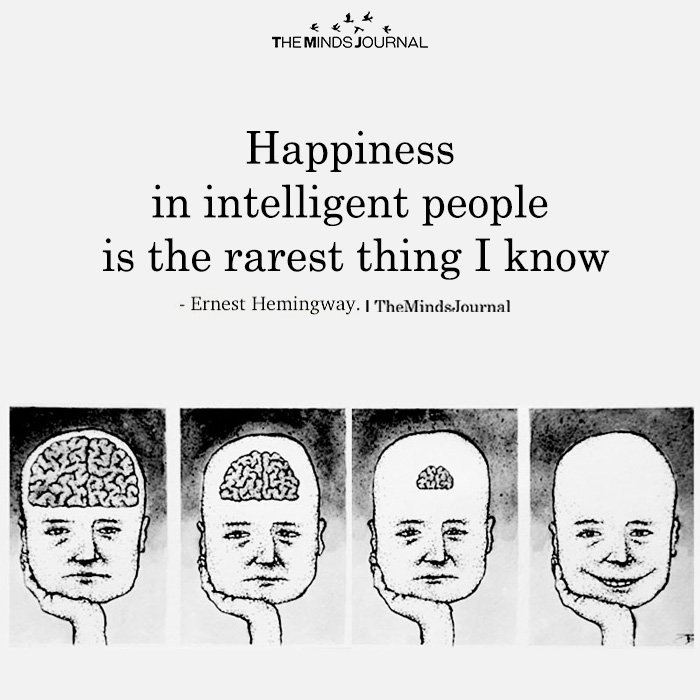
The burden of intelligence? Is that even a thing? Isn’t intelligence supposed to make our lives easier? Well, we have all heard the phrase, “ignorance is bliss.”
This is actually very true. As it turns out, intelligence and happiness are mutually exclusive because happiness is a state of mind whereas intelligence is a scope of mind. The more you know, the more you seek, and the harder your life becomes.
Realizing when someone is telling a lie based on their body language or facial expression, understanding the complexities of social frustrations, and a plethora of other things may seem like a great gift to some, but in reality, this awareness might be more troubling than just a gift.
Related: Why Highly Intelligent People Tend To Be Unhappy
Hearing people whine about how their life is “unfair” when they do nothing to change their projected path?
Knowing that the part of the problem is their ignorance (because they can’t see that) and it is part of your intelligence (because you can), you understand the varied differences in life and how each event or decision may unfold.
If you think you have raised the bar while carrying the burden of intelligence, chances are you are struggling to be happy.
7 Signs Of The Burden Of Intelligence
Let’s find out why intelligent people don’t find happiness in life.
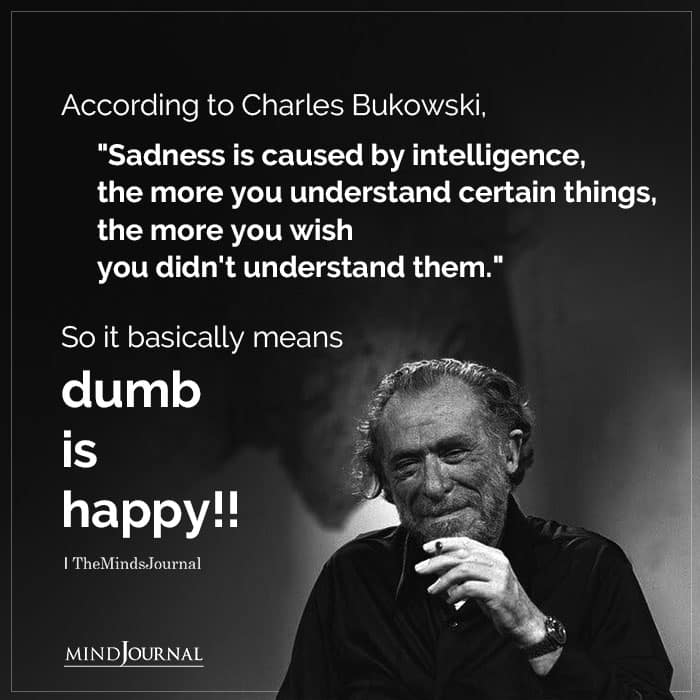
1. They tend to overanalyze and overthink everything.
It is rightly said, Ignorance is bliss. Overthinking makes the world look like a disappointing place occupied by the wrong people and unfair endings. The burden of intelligence keeps you from focusing on the good in others and forces you to find out the flaws and mistakes.
2. They want to match everything with their high standards.
Intelligent people refuse to settle for less, they are sure about what they want in life, and anything less than their expectations fails to satisfy them. The burden of intelligence makes people strive for perfectionism.
Related: Do you strive to be perfect in all areas of your life? Take this perfectionism test to find out!
3. They are too hard on themselves.
They tend to judge themselves continuously against the high standards and the high goals they have set for themselves. The burden of intelligence makes them self-critical. This is one of the reasons why intelligent people struggle to find happiness.
Related: If Happiness Is A Choice Why Are So Many People Miserable?
4. They are advocates of continuous growth and are never satisfied with the present – as it is.
People with a high IQ level always aim bigger and tend to make things better – adding effort even when they can just ‘be’ and relax. Due to the burden of intelligence, they hardly taste what they have earned.
5. They hate small talk and crave meaningful conversations, which makes them often misunderstood.
They often feel lonely and misunderstood as the connections they seek are hard to get. The depth with which they see things is often not appreciated by people who rank lower in IQ. This is why often it has been found that highly intelligent people are miserable due to loneliness.
Related: Why Highly Intelligent People Struggle To Find Happiness In Life
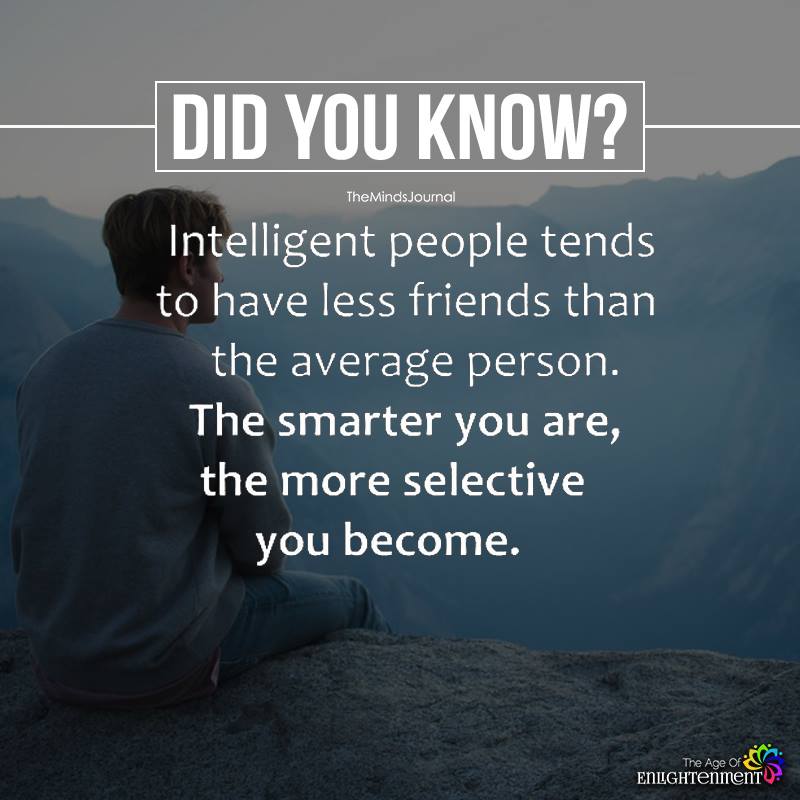
6. They have a high reputation to maintain all the time, which makes them constantly strive to achieve things and never let ‘be’.
Highly intelligent people think that they can’t slack even a little and they should never fail – as they are epitomes of perfection for themselves and others. This unrealistic expectation they put on themselves becomes the burden of intelligence.
7. They are absolute control freaks which makes a lot of responsibilities and expectations land on them ultimately.
They are usually the ‘strong ones’ in a group – with zero needs and superhuman capabilities. People assume they are willing to shoulder responsibilities on the behalf of others.
Related: 9 Surprising Downsides of Being Highly Intelligent
A high IQ can make you less happy
“All men who have attained excellence in philosophy, in poetry, in art, and in politics — even Socrates and Plato — had a melancholic habitus; indeed, some suffered even from the melancholic disease.” – Aristotle
Yes, a high IQ can make it more difficult to lighten up and enjoy life but it’s up to you whether you will let your intelligence become your weakness or your strength. Are less intelligent people happier? Well, those who are not aware of the limitations of their knowledge and the pain of people around them, do find it easy to be ignorant and happy.
But that doesn’t mean your intelligence is a bane of happiness. You can choose to be less hard on yourself and opt for a happier life.
“The intelligent mind knows everything but what’s good for it. The happy mind knows what’s good for it above everything.”
If you want to know more about why highly intelligent people tend to be unhappy in life, then check this video out below:
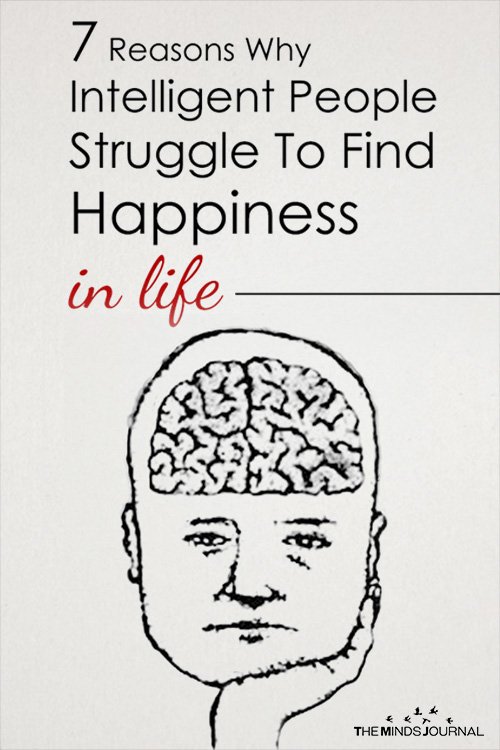
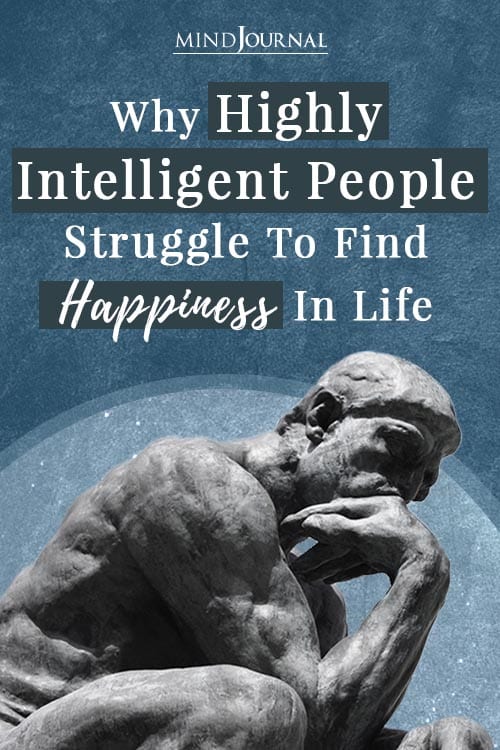
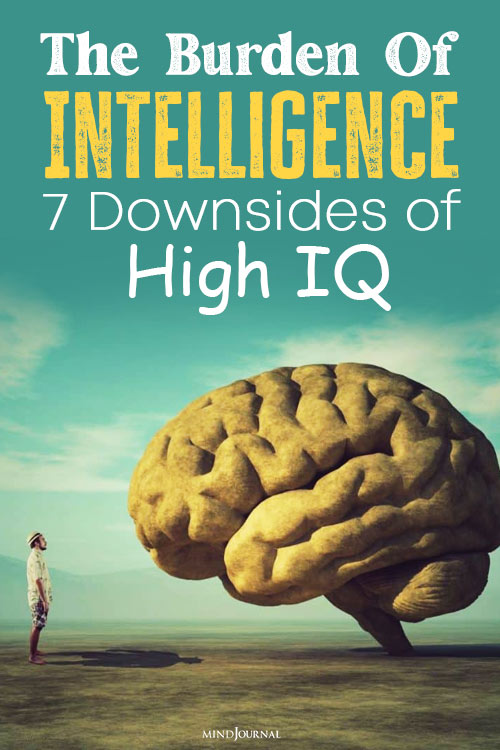
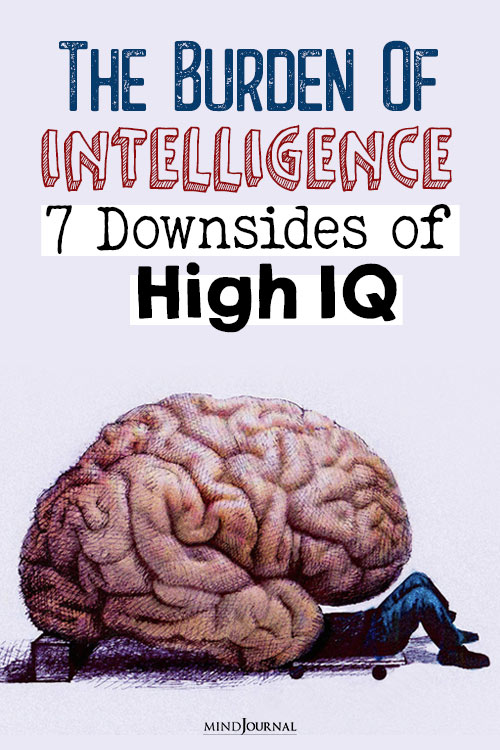
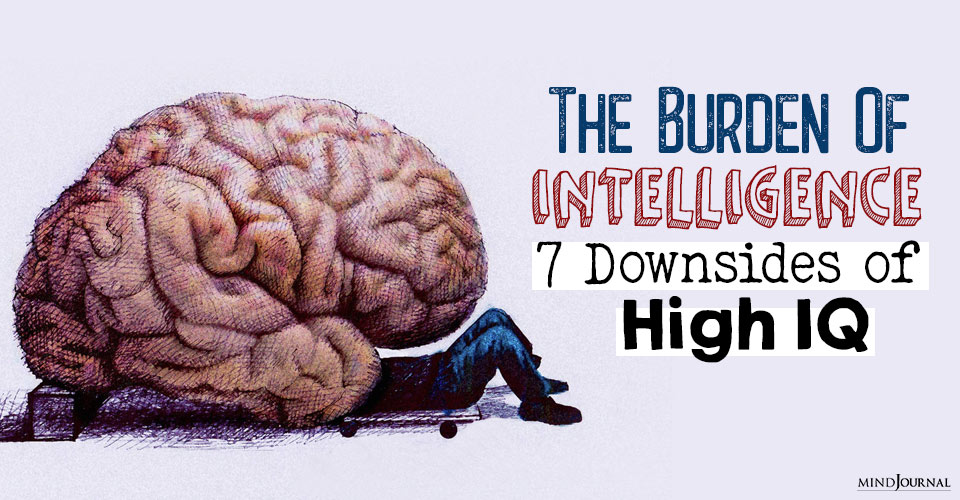












Leave a Reply
You must be logged in to post a comment.